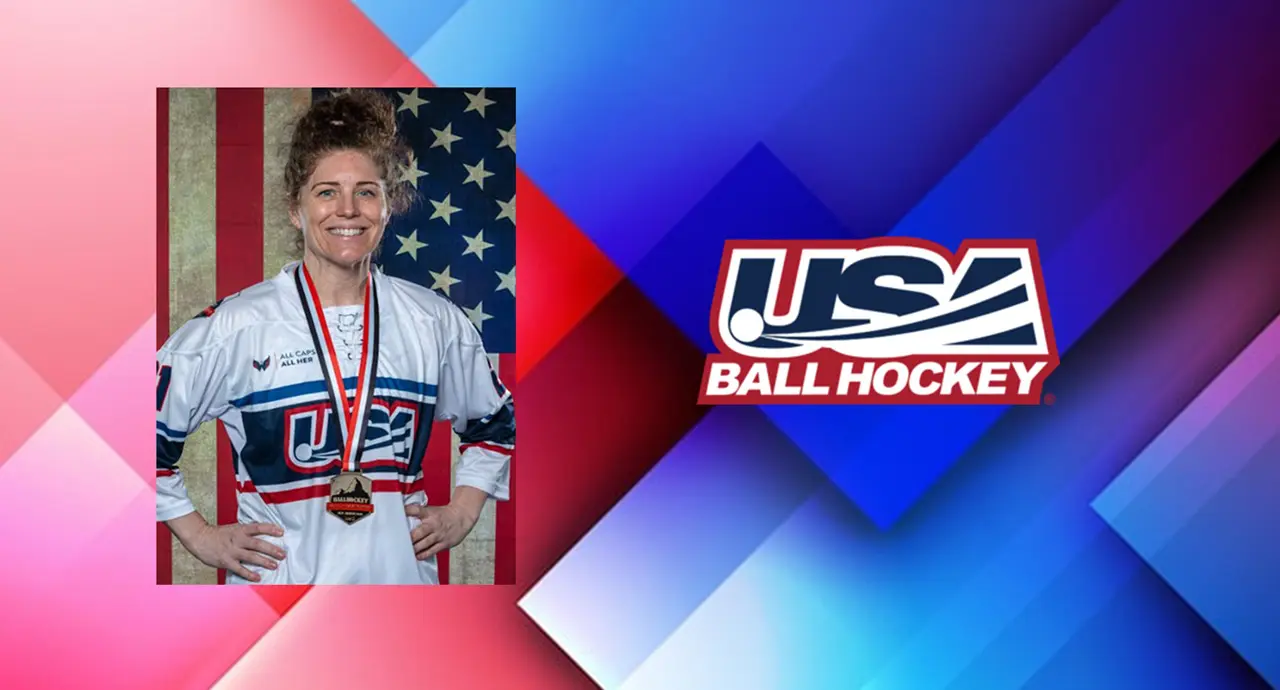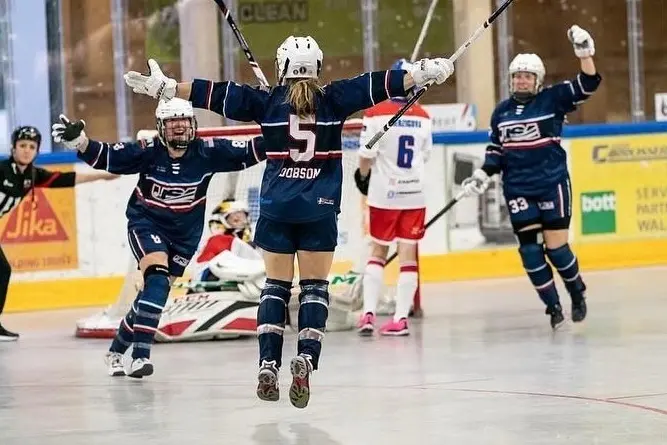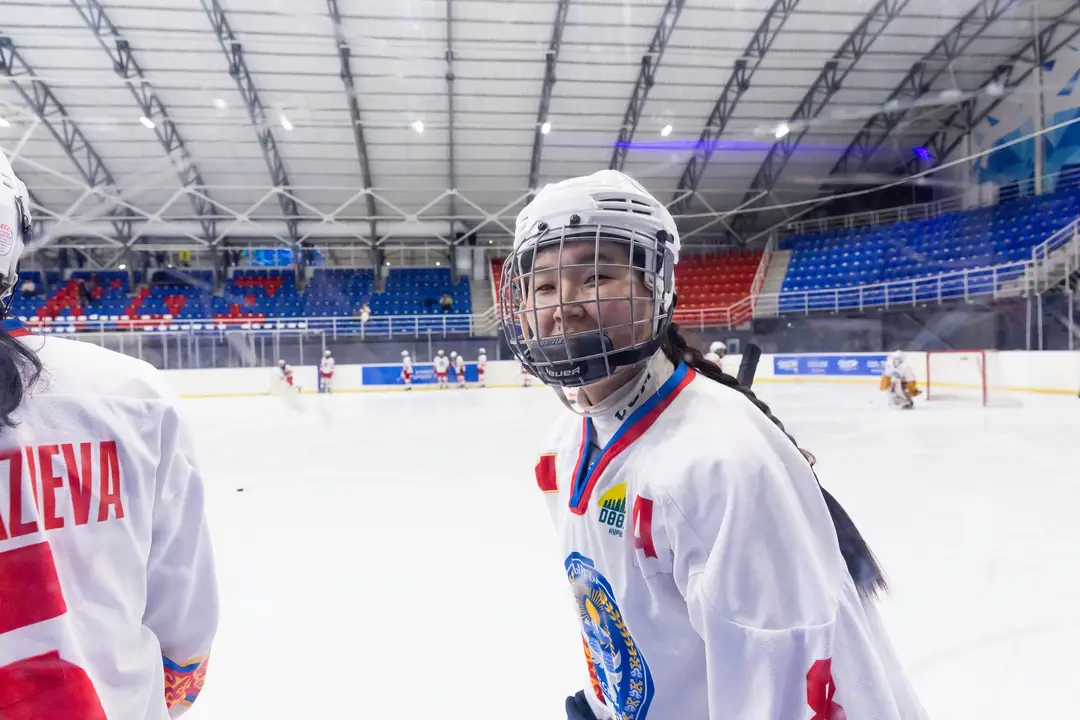
As someone relatively new to playing hockey, I can easily remember the challenges I faced when I was first learning to play the game. Some days it was hard enough to stay on my skates, stay onside, or receive a pass. The last thing I needed was the "constructive criticisms" of my teammates. As much as they were only trying to help, more often than not, I felt as if I was not much more than an object of ridicule or a cautionary tale on the ice.
I am on the executive board of a women’s recreational league that encourages beginners and has a primary objective to develop players and provide a safe place to learn to play. We have a broad range of skill levels in our league. The satisfaction of watching a skilled player mentor a new player is only trumped by watching that new player improve. However, sometimes those of us who aren’t new can unwittingly put up barriers to the development of the newer players and even discourage them from continuing to play. Here are the top five ways to prevent a new player from developing and improving:
1) Primarily provide them with critical feedback, even if your intentions are to help
I recently began playing goalie, and as part of my development, I signed up for a beginner league. Well, even though I was a beginner as a goalie, I was not truly a beginner in the same sense of the word as my teammates. Most of them didn’t even know how to put on their equipment, let alone stay up on their skates, know how to hold their sticks, know how or when to change lines, or even make any stick contact with the puck. While watching this in horror as my opponents constantly blew past them and fired on me, I thought back to when I was first learning to play as a skater. For most of my first season playing as a skater, after every game I was inundated with feedback from my much more experienced teammates. I wasn’t playing close enough to the boards, my stick wasn’t on the ice, I was turning my back to the puck, I was taking too long or too short shifts, etc. I was left with a feeling that I wasn’t doing anything right. The number of nights I drove home from the arena in tears vowing not to go back is beyond counting. I know my teammates’ intentions were to help me, but what I really needed was confidence. I needed to know something I was doing right so I could continue doing that and then build up from there. These painful memories came back to me as I watched my new teammates falling repeatedly, swinging at the puck and missing, and dropping their sticks for fifty solid minutes. Yet, they had no coach or experienced players on the team with them providing instructional feedback, so they laughed the entire time. We lost 11-0 our first game.
Back in the change room after the game, they were joyous and celebratory as many of them had just played in their first hockey game ever. My mind was racing with all the tips I wanted to give them — they needed to understand the concept of defense, make better line changes, use the boards… then I stopped and remembered how I wished I had been treated when I was new. I interrupted their chattering and declared, "Hey, I want to let you guys know what you did well in this game. Every time you fell, you got right back up and kept trying. And every time you swung at and missed the puck, you kept trying to hit it. That was great!" They were so pleased. I wanted them to know they did something right, and I was being sincere. They weren’t ready for discussions on positioning or strategy, and after losing 11-0, the last thing they needed to hear was what they should have or could have done better. As the goalie who just lost that same game, I know I would have been crushed if someone decided to give me advice and tips at that moment.
When you have players on your team who are new to hockey, focus on what they are doing right first. After you’ve built up their confidence somewhat and kept them focused on doing the same right things continuously, you can gradually and carefully bring up tips for improving. They want to learn from you, but when they are very new, they need your encouragement most of all.
2) Only assign them to play winger
A fact of women’s rec hockey is that the players newest to the game are put in as wingers. Defense is perceived as too important to risk on a beginner who might let a breakaway slip through. Center requires speed, agility, endurance, and ability to handle the puck. For whatever reason, winger is seen as a more "disposable" position where a beginner can be placed and be covered by the players surrounding her. I can’t really say that I disagree with this premise. But, it does become dangerous when players are pigeonholed into one position. Your novice teammates aren’t stupid — they realize the perception of defense and center as the positions requiring more skill. If they continue to play winger game after game, that will become their comfort zone. And guess what happens when one night the weather is bad and your team only has nine skaters? You may be desperate for a center or a defender, but the newer player has only ever played winger and is terrified to do something new. After all, winger is her role as a newbie, right?
If your league and team encourages women who are new to hockey and has a desire to help develop their skills, sometimes they should be pushed out of their comfort zones a bit, even if it’s only for one period, to play defense or center. If you don’t encourage them to do this, their development will be arrested. And, going back to point #1 above, if they do try out a new position, be sure to tell them all the things they did well while they were playing. And, the fact that you showed enough confidence in them to entrust them with playing different positions will only increase their confidence levels, and no player can truly begin to improve without confidence.
3) Pull them off the ice for power plays, penalty kills, or close-game situations
For those of us who play in rec leagues where the fundamental principle is that everyone pays the same amount to play and deserves the same amount of ice time, we’ve seen this fly out the window in close-game situations or other circumstances such as penalty kills. I firmly believe that when there is a penalty kill, a power play, the goalie is pulled, or a close game, the player who should be going out on to the ice next is the player whose turn it is. When I was a beginner, I can remember a situation where the game was in the final two minutes and we were losing by one goal. The other winger came off (and of course, as a beginner, I was playing winger), and I was just about to step out onto the ice to take her place when our coach instructed me to stay on the bench and then sent out one of the strongest players on the team. The message sent by that action was very clear — I was not to be trusted on the ice in such delicate situations as I wasn’t as skilled as others on the team. However, I paid the exact same amount to play as the gal who was sent out in my place. But she got the ice time, the chance to be a hero, and the learning opportunity. After that happened, I had zero motivation to continue participating in the game. And why would I feel like I had anything to contribute?
One of the best things that can happen to a new player is for her to be the hero of a game — block a shot, score a game-tying or game-winning goal, or make a great pass that leads to a goal. When new players are prevented from even playing in such important situations, experiences such as these are not even a possibility. Everyone on the team deserves the chance to be the hero — especially in recreational hockey where everyone is paying the same amount of money for that chance.
If a player volunteers to sit out during a specific game situation and let another more experienced player skate in her place, that is a different story because then it is the beginner voluntarily giving up ice time. But even when that happens, the rest of us have a chance to really boost her confidence by encouraging her to seize the moment and assuring her that she has our confidence, even when the game is on the line.
Very recently I was pulled from the ice by my teammates in favor of a more skilled player in the last minute of a close game. Having that happen to you is always painful, regardless of your age or how long you’ve been playing.
4) Be visibly frustrated when they make mistakes
Have you ever made a bad pass to one of your teammates that was very far out of her reach and she reacted by slamming her stick on the ice or swearing? I think most of us have experienced that from a teammate at least once. Even the best hockey players in the world make errant passes, miss open nets, or take foolish penalties. But when your teammates are clearly frustrated with you, you feel demoralized, right?
Now imagine that you are a brand new hockey player who still has so much to learn. And imagine that you have a teammate who gets visibly angry or blames you for something that goes wrong. You very well, and understandably, might leave the ice and never come back.
As recreational players, we should be understanding when our teammates make mistakes and even reassure them when they do. This is crucial when playing alongside beginners who are already extremely self-conscious and eager to prove themselves.
5) Fail to point out their improvements
I’ve already mentioned the importance of telling new players what they are doing correctly. But even more important is telling them, in specific terms, how they’ve improved. They may have improved sevenfold over three months, and it might be obvious to everyone, but unless that player hears it from her teammates, she might wonder if she’s really improved or if it is her imagination. Sometimes we fear that telling our teammate that she’s improved is tantamount to telling her she used to be bad (such as the unfortunate and unspoken stigma that is often attached to "most-improved-player" awards). But how this feedback is delivered can make all the difference. For example, if you say to a player, "Wow, you finally learned how to raise the puck!" you might actually do more harm than good. But if you say, "Hey, you know, your shooting has really gotten good — you do a great job of raising the puck!" that’s the type of feedback that can make a player’s day or even her season. She will know that her perseverance has paid off in ways that are noticeable to others, and this will probably inspire her to work even harder at ramping up all her skills.
Remember, the beginners you play with today will hopefully someday be skilled players who can challenge you and help you improve. They are the future of your team, of your league, and of our great sport of women’s rec hockey. We want to do everything we can to encourage them to stick with the sport.
[adrotate group=”1″]
Related Articles
Categories
Recent Posts
[adrotate group=”2″]




